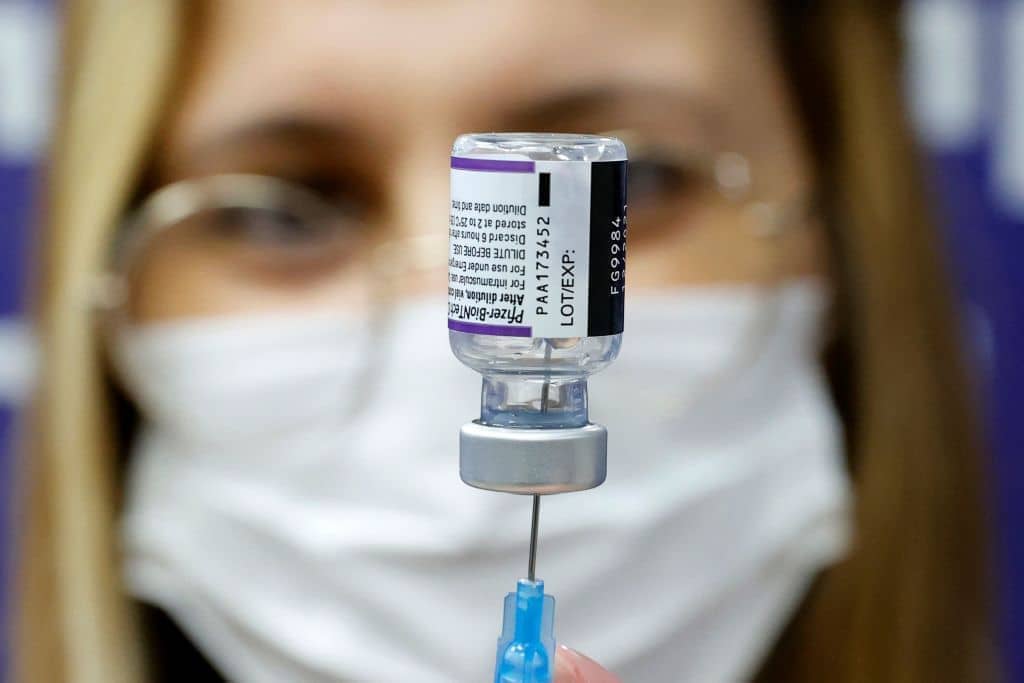The good news picture continues to build for Omicron. Late on New Year’s Eve, the UK Health Security Agency released an update to their estimates for vaccine effectiveness, and for the first time they’ve been able to give a picture of how well vaccines protect against hospitalisation from Omicron. The figure is strong: 88 per cent. This bodes well for a country with the highest booster uptake in Europe (94 per cent of over-60s are now boosted) and the study should offer reassurance ahead of Monday’s decision on whether to impose more restrictions on England.
First of all, this chart shows protection against symptomatic disease. Oxford/AstraZeneca is ineffective against Omicron for symptomatic infection. But with a Pfizer booster, protection against symptomatic disease jumps to 64 per cent after 2-4 weeks; after ten weeks, it falls to 42 per cent.
The boosters protect even better against the (still-circulating) Delta variant, even with a slight decrease by ten weeks after a booster jab is received. The protection against Omicron wanes more quickly after ten weeks – but don’t forget this is protection against any symptoms.
The booster programme may well mean the high number of infections doesn’t translate into the high number of Covid patients in hospital that it might otherwise have done
Although the booster protection against Omicron infection isn’t as high as we might wish, the more important question is whether boosters protect against serious infection. This is where the estimates against hospitalisation help. Look at the booster jump:
UKHSA don’t currently have enough data to split this by the brand of vaccine, but the picture is clear. Every vaccine dose helps, but the booster dose gets protection from hospitalisation up to almost 90 per cent. Although the booster may not stop you from catching Omicron, it seems to go a very long way to reducing the severity of the disease.
The first month of this year may be looking challenging, but the booster programme may well mean the high number of infections doesn’t translate into the high number of Covid patients in hospital that it might otherwise have done.
Combined with data showing that recent Covid patients have tended to be discharged after an average of four days, it suggests the boosters may have done enough to protect Britain from the need for more restrictions. These two charts show how the booster rollout has fared:
And one final chart; given that the news on AstraZeneca vs Omicron is not great, here’s a chart of the ages of people who were given AstraZeneca first time around:







Comments